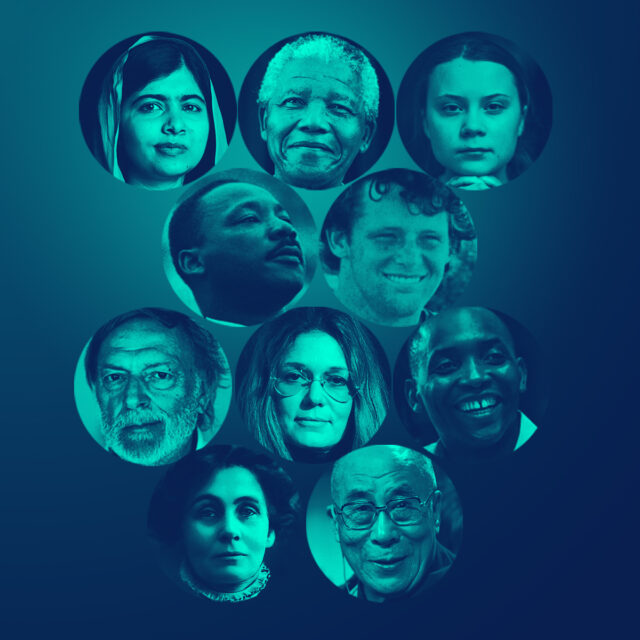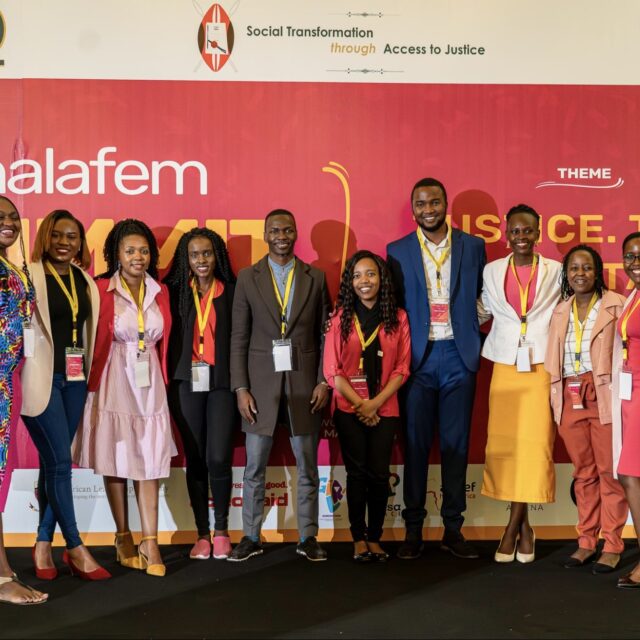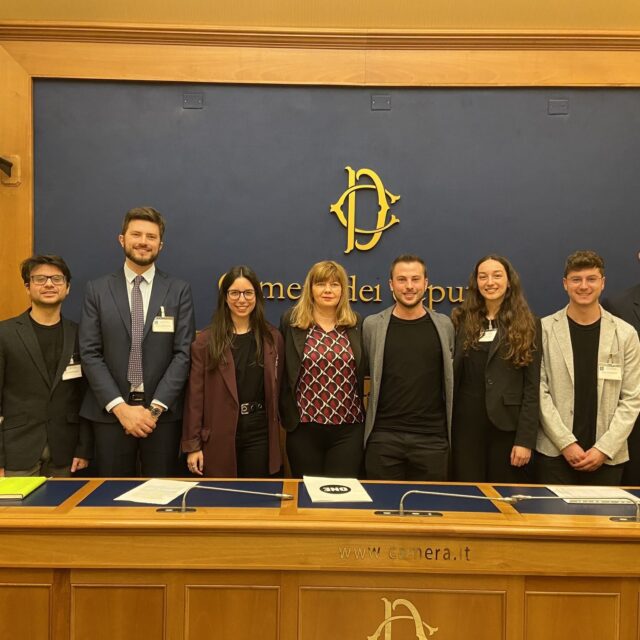Earlier this year, we celebrated Malala Day and Mandela Day: two incredible changemakers who have dedicated their lives to fighting injustice. As part of the celebrations, we composed a list of 10 well-known activists who lead, educate, and inspire us to change the world, and asked ONE supporters to vote for their favourite.
Over 7,000 supporters from around the globe cast their votes. Here are the top three voted activists:
In first place is 18-year-old Swedish environmental activist Greta Thunberg.
In second place is South African anti-apartheid revolutionary Nelson Mandela.
And in third place is U.S. civil rights leader Martin Luther King Jr.
Read more about all the activists who made the list below.
Malala Yousafzai, a Pakistani activist for girls‘ education
Malala Yousafzai was born on July 12, 1997, in Mingora, Pakistan. Malala‘s father, a teacher who ran a girls‘ school, was keen on giving his daughter every opportunity possible. As such, she attended school, until the Taliban took control of her city and forbade girls from doing so.
From that moment onwards, Malala decided to publicly speak out against this prohibition. This made her a target, and in October 2012, at the age of 15, on her way home from school, she survived an assassination attempt after getting shot on the left side of her head.
After months of treatments and hospital visits in the UK, where she was treated, Malala created the Malala Fund, “a charity dedicated to giving every girl an opportunity to achieve a future she chooses.” In 2014, Malala and Kailash Satyarthi were jointly awarded the Nobel Prize for Peace for their work on the behalf of children‘s rights.
Nelson Mandela, a South African anti-apartheid revolutionary, political leader, and philanthropist
Nelson Rolihlahla Mandela was born on July 18, 1918, in Mvezo, South Africa. Throughout his life and imprisonment, Mandela became a symbol of resistance and the anti-apartheid movement in South Africa. Later in life, on May 10, 1994, Mandela was inaugurated as the country’s first black president. During his presidency, Mandela worked to reconcile the country and protect the South African economy, whilst writing a new constitution that established a strong central government based on majority rule and guaranteeing both the rights of minorities and the freedom of expression.
After retiring from political life in 1999, Mandela remained committed to raising money to build schools in South Africa and became involved in the fight against AIDS, after his son passed away from the disease. Mandela died on December 5, 2013, at the age of 95, in his home in Johannesburg, South Africa, but his legacy lives on through his lifelong activism work.
Greta Thunberg, a Swedish environmental activist campaigning on climate change
Greta Thunberg was 15 when she won an essay competition on climate change in her local newspaper. Shortly after, she protested to pressure the Swedish Parliament to meet the carbon emissions target set by the Paris Agreement in 2015. From that moment onwards, she regularly skipped school on Fridays to protest and encouraged students around the world to do the same.
In August 2019, she officially took a year off school to focus on campaigning by attending conferences, joining protests around the world, and meeting key leaders to raise awareness surrounding climate change and its impact on developing countries. In 2019, during the UN Climate Conference, she delivered her famous speech on climate change. Now throughout the COVID-19 pandemic, her activism has been taken online.
Gloria Steinem, an American feminist, political activist, and journalist
Gloria Marie Steinem was born in Toledo, Ohio in 1934. Following her graduation from Smith College in 1956 and participating in various nonviolent protests against government policy in India, her work became increasingly political and her involvement in feminist movements intensified. Steinem‘s dedication to feminism and the feminist movement led her to help found the National Women‘s Political Caucus, the Ms. Foundation for Women, the Free to Be Foundation, and the Women‘s Media Center in the United States. Additionally, throughout her career, she‘s helped found the Donor Direct Action, Donor Direct Action, and Direct Impact Africa.
Today, she dedicates her time to political organizations and advocating for the women‘s liberation movement.
Martin Luther King Jr., a Baptist minister and social activist who led the U.S. civil rights movement
Martin Luther King, Jr. was born in January 1929 in Atlanta, Georgia, and participated in activism throughout his life. Notably, in December 1955, he took the leadership of the first nonviolent demonstration in the United States against segregation, which was a bus boycott that lasted for 382 days. Between 1957 and 1968, King traveled around the US to protest injustice and take action, and in 1963, he directed the historic march on Washington, D.C., where he delivered his famous “I Have a Dream” speech. On April 4, 1968, however, King was assassinated on the balcony of his motel room in Memphis, Tennessee, but his legacy lives on through the activism work.
Terry Fox, a Canadian athlete, humanitarian, and cancer research activist
Terrance (Terry) Stanley Fox was born in July 1958 in Winnipeg, Canada, and was an athlete from early
childhood. In March 1977, however, Terry was diagnosed with a type of bone cancer that often starts in the knee. Due to the fast-spreading nature of cancer, Terry‘s leg was amputated, as that was determined to give him the best chance of survival. This, however, did not stop Terry from being an athlete. Terry played professional wheelchair basketball, winning numerous titles, and eventually decided to run across Canada to raise awareness and funds for cancer research.
Unfortunately, in September of 1980, Terry was forced to stop running because his cancer diagnosis had spread to his lungs. Once again, this didn‘t stop Terry from his activism work. He moved on to become Companion of the Order of Canada and was given the Order of the Dogwood. In February of 1981, Terry raised $1 for every person in Canada, which resulted in donations that topped $24.17 million. Sadly, in June of 1981, Terry contracted pneumonia and died at Royal Columbian Hospital in New Westminster on June 28.
Gino Strada, an Italian war surgeon and founder of EMERGENCY
Born in 1948 in Lombardy, Italy, Gino Strada started his career as a specialist surgeon following his graduation from the University of Milan. Through his work, he spent time working in hospitals across the US, Italy, and South Africa. But it wasn‘t until 1989 that he joined the International Committee for the Red Cross, as a war surgeon.
Fast forward to 1994 and he, alongside his wife Teresa, founded EMERGENCY, an NGO that works to provide free, high-quality, medical and surgical assistance to the victims of war, poverty, and landmines. In 2020, EMERGENCY has worked across 19 countries and has treated over 11 million people.
Emmeline Pankhurst, British leader of the Suffragette Movement
Emmeline Pankhurst is the founder of the Women‘s Franchise League, which was founded in 1889 and worked to give married women the right to vote in local elections. She also co-founded a more militant organization, the Women‘s Social and Political Union, and through the union, she participated in hunger strikes, window smashings, and more, in order to garner attention in the fight for women‘s right to vote. Despite passing away shortly after women were given equal voting rights, her legacy lives on in every vote cast by women today.
Aboubakar Soumahoro, an Ivorian/Italian trade unionist and advocate for migrant workers’ rights
Aboubakar Soumahoro is an Ivorian and Italian trade unionist, whose activism is drawing attention to migrant workers‘ rights. Originally from the Ivory Coast, having moved to Italy as a teenager, Aboubakar is the head farmworker coordinator for the Unione Sindacaledi Base, which was founded in 2010. He is the lead behind a strike in Italian fields, where many migrant workers work for just €3 an hour, and promotes his activism via social media.
The 14th Dalai Lama, the highest spiritual leader of Tibet and advocate for greater global equality
Recognized as the reincarnation of the 13th Dalai Lama, the 14th Dalai Lama is the spiritual leader of Tibet and has been involved in Tibet‘s peace and democratization processes. Through his activism and throughout his career, he has proposed a Five-Point Peace Plan, to bring peace to Tibet, and has addressed the UN and European Parliament multiple times. He was awarded the Nobel Peace Prize in 1989 for his non-violent work towards the liberation of Tibet and is recognized for his concern with problems relating to the global environment. In 2011, he put an end to Tibet‘s 368-year-old tradition of having the Dalai Lamas function as the temporal and spiritual head of Tibet, after signing a document to formally transfer his authority to a democratically elected leader.



